Iran’s ICT Minister Denies His Family Members Hold Australian Citizenship
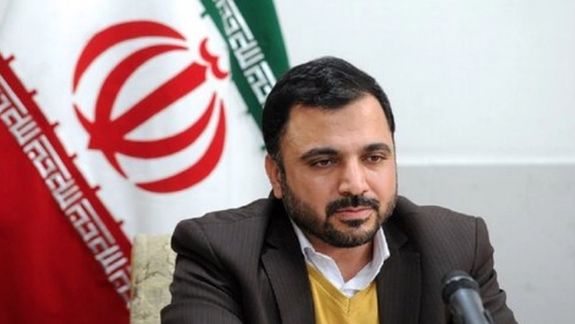
Iran's Information and Communications Technology Minister Issa Zarepour has denied an accusation that his family members have dual nationality.

Iran's Information and Communications Technology Minister Issa Zarepour has denied an accusation that his family members have dual nationality.
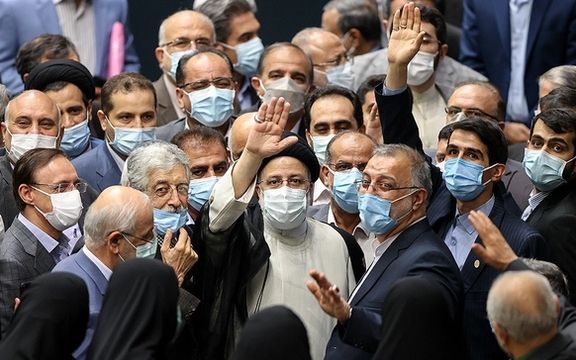
Criticism of Iran’s governing hardliners fills the pages of some local media for failing to manage the economy and making irrational decisions that hurt the people.
Responding to Iranian hardliners' insistence on employing clerics to supervise government and private institutions in a wide range of areas from banking to medicine, Iranian lawmaker, Massoud Pezeshkian said that no cleric, judge or government minister would put his life at risk by going to a doctor who is a devout Muslim but does not have the medical qualifications.
He said, on the contrary, many of those officials would go abroad to seek medical assistance for a simple surgical operation but when it comes to taking care of the people, they advise that religious virtues, without the right qualifications, comes over and above their academic credentials.
Pezeshkian, a member of the Iranian parliament's medical committee suggested that in the interest of the people's welfare, the government should prioritize professional abilities in various professions instead of employing zealot Muslims with little qualifications and skills. The lawmaker who is a medical doctor criticized government plans to place clerics in all bank branches as Islamic supervisors.
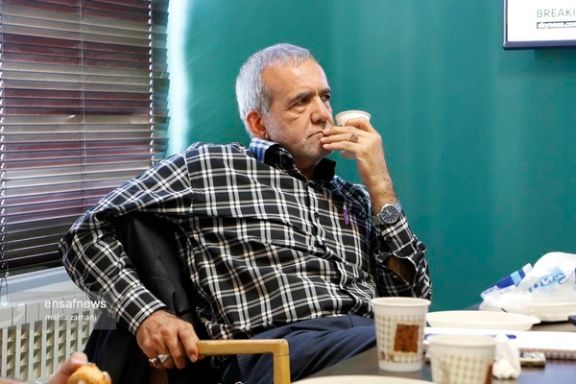
Criticism of the government in Iran during these days is not limited to lay officials and politicians. Grand Ayatollah Hossein Nouri Hamadani, a source of emulation, one off the highest ranks in the Shiite clerical system, has also called on President Ebrahim Raisi (Raeesi) on September 2, to be serious in tackling inflation.
Didban Iran website quoted Noori Hamadani as saying "It is undeniable that sanctions imposed by the enemies have affected the country's economic situation, but the government should not take advantage of this to justify its failure in controlling the prices and harnessing inflation."
Saying this during a meeting on Friday with the Minister of Industry Reza Fatemi Amin, the grand ayatollah suggested that the government should do its best to provide what the people need by boosting production. He added that "the only sign of the officials' success is the people's happiness. But we see that people find it difficult to buy even a kilogram of fruit."
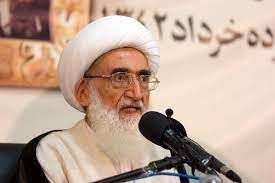
In another development, lawmaker Behrouz Mohebbi of the Iranian parliament's planning and budget committee, told reporters in Tehran on Friday that government’s decision in early May to cancel import subsidies for food, medicine and animal feed has led to unprecedented inflation.
Meanwhile, he attributed part of the problems people face to the fact that the government always talks about long-term plans and has no short-term planning to solve the country's economic issues. Mohebbi further called on President Ebrahim Raisi to take serious measures to help the underprivileged part of the Iranian society.He criticized Raisi and his ministers for pretending during cabinet meetings that the people's financial situation is improving. Mohebbi reiterated that people find it difficult to make ends meet. They are under immense economic pressure.
Meanwhile, conservative commentator Mohammad Mohajeri, a former editor of hardline daily Kayhan, wrote on his Telegram channel that it appears the government has reduced the individual quota for purchasing gasoline at the subsidized price from 250 to 150 liters per month in what appears to be a prelude to raising fuel prices in Iran.
He added that gasoline rationing cards are likely to be made obsolete soon. According to Iranian media, Iranians consume some 120 to 130 million liters of gasoline every day.
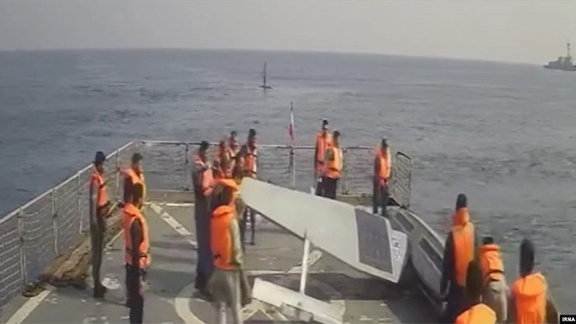
Iran says its navy seized two American sea drones in the Red Sea but later released them, the second such incident involving the US Navy’s drone fleet in the Mideast this week.
Iran’s state broadcaster reported on Friday, "The (Iranian navy) frigate Jamaran seized the two vessels on Thursday to prevent any possible accident after issuing warnings to the US fleet," accusing the unmanned vessels of jeopardizing maritime safety.
“After securing the international shipping waterway, the Naval Squadron No. 84 released the two vessels in a safe area,” the report added.
The state television also aired footage that appeared to show more than a dozen lifejacket-wearing Iranian navy personnel pushing two Saildrone Explorers into the sea from the deck of their vessel, as another warship could be seen in the distance.
Later in the day, Commander Timothy Hawkins, a spokesman for the Navy’s Mideast-based 5th Fleet, confirmed the incident to The Associated Press but declined to elaborate.
On Tuesday, the US Naval Forces Central Command said that ithe US Navy prevented a support ship from Iran’s Revolutionary Guard’s Navy -- named Shahid Baziar -- from capturing an unmanned vessel operated by the US 5th Fleet in the Persian Gulf.
The 5th Fleet launched its unmanned Task Force 59 last year, with an area of responsibility covering the crucial Strait of Hormuz, the narrow mouth of the Persian Gulf through which 20 percent of all oil passes, and stretching as far as the Red Sea reaches near the Suez Canal, the waterway in Egypt leading to the Mediterranean, and the Bab el-Mandeb Strait off Yemen.
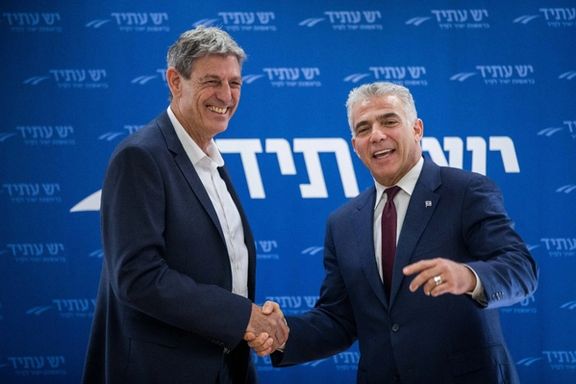
Israel believes Western powers can reach a better nuclear deal with Iran, a senior lawmaker said on Friday, as attempts to revive a 2015 pact continue with no final deal yet.
"We must draft a much better deal with a much longer stick. And this is what we're not seeing," Ram Ben-Barak, head of parliament's foreign affairs and defense committee, said in a radio interview in Israel.
Tehran's insistence that the International Atomic Energy Agency (IAEA) close its probes into uranium traces found at three undeclared sites before the nuclear pact is revived is one key hurdle.
After 16 months of indirect talks between Tehran and Washington, the European made a proposal in August but key differences remain between Iran and the US.
The open probes and future inspection were Israel's main concerns with the current deal, Ben-Barak said.
"We must get honest and real answers about what they did there," he said.
Ben-Barak, who once served as deputy director of Israel's Mossad spy agency, said Iran is not as strong as some people may think and has been struggling under sanctions. This could lead Tehran to give up on its nuclear ambitions entirely, whether by diplomacy or military power, he added.
Israel has pledged never to allow Iran to obtain atomic weapons, saying Tehran advocates its destruction. Iran denies ever seeking nuclear arms.
"What Israel wants is something better in place of this deal. Something better means telling the Iranians 'listen, you will not have a nuclear program'," he said.
Reporting by Reuters

Following the recent escalation of Israeli strikes against Iran-linked targets in Syria, Russia has asked the Islamic Republic to withdraw from military positions in western and central Syria.
London-based newspaper Asharq Al-Awsat quoted unnamed Syrian sources as saying on Friday that Moscow has demanded Iranian-backed militias to evacuate positions west of Syria’s Hama province as well as from positions in the central and western parts of the country.
According to the report, Russia’s call is meant to deprive Israelis of excuses or pretexts to continue the bombing of targets where Russian forces are present.
“Russian officers informed the Iranian side of the need to evacuate Iranian military headquarters near the site of Regiment 49, which belongs to the Syrian regime forces,” a source told the paper, adding that the demand was made during a meeting that included three Russian officers and their Iranian counterparts on Wednesday.
The Regiment 49 site is one of the most important military sites in western Hama as it houses long-range S-200 missiles and other Russian-made military equipment.
“The Russian officers also demanded that the Iranians evacuate a second military site in the Hamidiya area, south of Tartus governorate on the Syrian coast,” the source added.
Following Israeli airstrikes on targets around Aleppo and Damascus in Syria, Foreign Minister Faisal Mekdad said on Thursday that Israel was "playing with fire," noting that "Syria will not remain silent regarding the repeated Israeli attacks and the Israelis will pay the price sooner or later."
Israel conducted several airstrikes against the Aleppo International Airport in northwestern Syria, hours before its missiles struck targets southeast of capital Damascus Wednesday night.
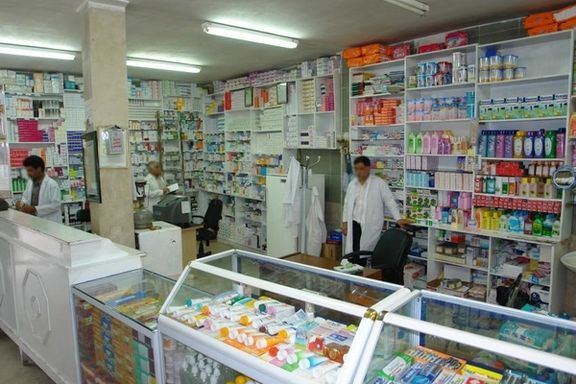
An Iranian lawmaker has warned about the failure of the government’s Medicine Assistance Plan to make prices affordable amid high inflation and rising poverty.
“Patients, particularly those with rare diseases, have been facing problems since the removal of medicine import subsidies,” Mohammad-Taghi Naghdali, a member of the parliament's judicial and legal committee, told the Iranian Students' News Agency (ISNA) Thursday, adding that lawmakers have warned that without allocation of cheap foreign currency to pharmaceutical imports the government's Medicine Assistance Plan is bound to fail.
Social media users say the cost of medicine has sharply risen in the past few months and some vital drugs for treatment of rare diseases are very hard to find except on the black market.
Pharmacies and insurance companies have also been complaining about the An Iranian lawmaker has warned about the failure of the government’s Medicine Assistance Plan to make prices affordable amid high inflation and rising poverty.
President Ebrahim Raisi announced in early May that his government had begun the process of removing up to $15 billion import subsidies for basic foods, medicine, and animal feed despite warnings of more inflation and hardship. Raisi also said the government would be paying cash assistance to most Iranians as compensation.
The removal of import subsidies meant that manufacturers would no longer receive cheap dollars from the government to import raw materials to produce medicine.
While the compensation for bread is directly paid to individuals, compensation for medicine is supposed to be made through the healthcare insurance companies which will then pay it to pharmacies.
Dr Ali Fatemi, deputy chairman of Iran Pharmacists Association, who is a critic of the government’s plan, said Friday that currently there is a serious shortage of antibiotics including antibiotic syrups for children as well as medication required for treatment of rare diseases and psychiatric drugs. He warned that some companies may cease production of antibiotics if demand drops due to unaffordable prices.
Lawmakers have summoned health minister Bahram Einollahi twice in the past month for explanations regarding the ambiguities in the government plan anda parliamentary committee has given the government two weeks to resolve these issues.
Some critics believe that the government’s healthcare policies are influenced by insider groups and state affiliated entities.
“It is now obvious for everybody that pharmaceuticals are controlled by mafia-like groups with ties to the government, the Execution of Imam Khomeini's Order Headquarters (EIKO), and the Supreme Leader's office,” Mohammad-Kazem Attari, US based physician and public health researcher, told Iran International.
EIKO, which is known in Persian simply as Setad is controlled by the Supreme Leader and his office. Another state entity, Barakat Foundation which is also under Supreme Leader's control, was put in charge of developing a homegrown COVID vaccine. The program ended in failure after squandering tens of millions of dollars and precious time that could have prevented around 40,000 deaths in July-September 2021.
Dr Attari said this influential group comes up with ad hoc and unconsidered plans, including the Medicine Assistance Plan, to secure its own interests whenever foreign currency for importing medicine and pharmaceutical products becomes scarce.
According to Dr Attari, this group has control over 60 to 80 percent of all pharmaceutical imports and production. “That’s why the Medicine Assistance Plan was hastily introduced in the system immediately after the removal of cheap import dollars without any pilot studies.
He made the remarks in an Instagram post on Friday after Iran International released travel documents that reveal two of Zarepour's children hold Australian citizenship.
Zarepour claimed that none of his family members and even immediate relatives has dual nationality.
In early August, Mohammad Saleh Hashemi Golpayegani, the secretary of Iran’s Headquarters For Enjoining Right And Forbidding Evil, tasked with promoting the clerical regime’s interpretation of Islamic laws, criticized the high number of “senior officials” whose relatives are living abroad, confirming that there are over 4,000 sons and daughters who have left Iran.
Earlier in the year, General Morteza Mirian, the commander of Iran’s Revolutionary Guards’ ground operations, said that the relatives of these officials should be “tracked” so as not to be allowed back to Iran to take up managerial positions.
A figure of 5,000 “descendants” of senior officials living abroad was cited in 2020 by Mohammad Gharazi, communications minister between 1985 and 1997 who was at the time considered a presidential hopeful. In November 2021, Alireza Salimi, a member of parliament, suggested that officials under former President Hassan Rouhani, including deputy ministers had moved to Europe due to fears they would be banned from leaving the country.
In 2019, Brian Hook, special representative for Iran (from 2018 to 2020) under President Donald Trump “children of Islamic Republic officials live rich and comfortable lives in the United States and other countries while Iranian people live in terrible conditions.” Hook said this showed “the regime’s hypocrisy.”